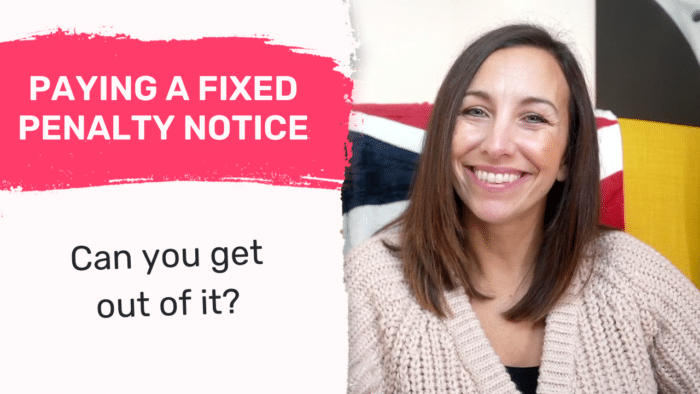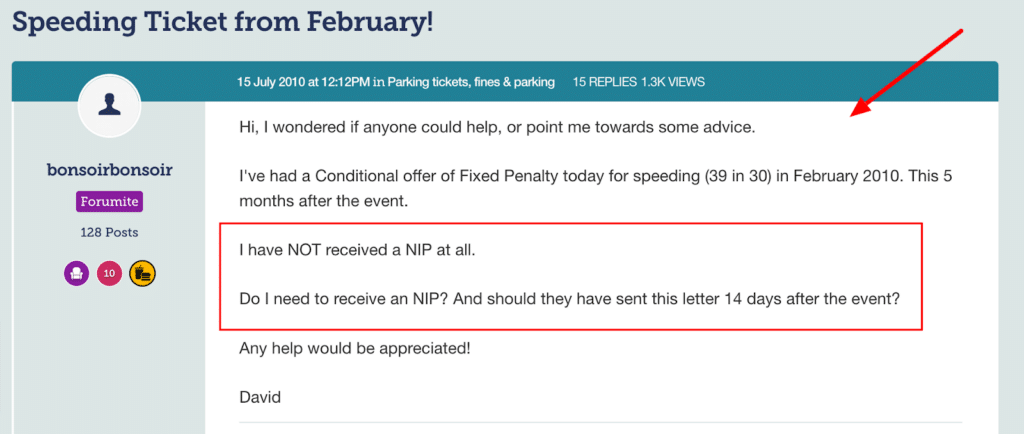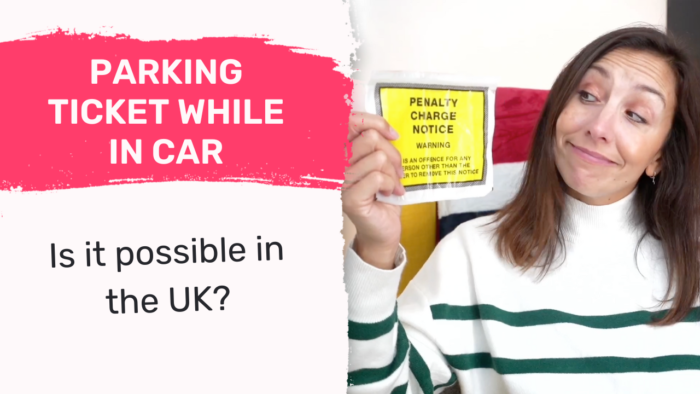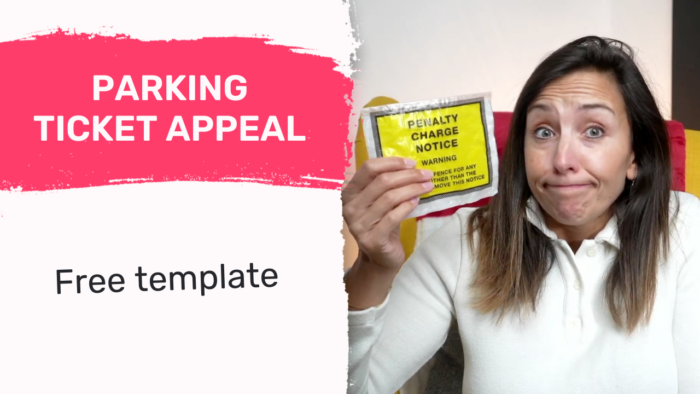How to Get Out of Paying a Fixed Penalty Notice?

Have you just received a Fixed Penalty Notice? Don’t worry, you’re not alone. Every month, over 32,000 people come to us for advice on fines and tickets. It can be very confusing, but we’re here to help.
In this article, we’ll explain:
- What a Fixed Penalty Notice is and why you might get one
- How to appeal your notice and maybe not pay it
- How long it takes for a notice to arrive
- What happens if you don’t pay your notice
- Where you can find more help if you need it
Our team has a lot of experience with issues like yours. We know how you feel when you get a notice, and we’re ready to guide you. So, take a deep breath, and keep reading to learn how to deal with your Fixed Penalty Notice.
Do You Have to Pay?
In some circumstances, you might have a legitimate reason not to pay your fine.
It’s a bit sneaky, but the last time I needed legal advice, I paid £5 for a trial to chat with an online solicitor called JustAnswer.
Not only did I save £50 on solicitor feeds, I also won my case and didn’t have to pay my £271 fine.
Chat below to get started with JustAnswer
In partnership with Just Answer.
How Much is a Fixed Penalty Notice?
The fine attached to a Fixed Penalty Notice will differ based on the offence and even details of the offence.
For example, a Fixed Penalty Notice for speeding is a minimum of £100 but is calculated based on the amount you were driving above the speed limit and your weekly income.
Can I refuse to accept a Fixed Penalty Notice?
Yes, you can refuse to accept the offer made within a Fixed Penalty Notice if you don’t agree you are guilty of the alleged offence.
A Fixed Penalty Notice is only an offer to accept certain punishment to avoid court prosecution. It’s not mandatory for you to accept the punishments presented, but this won’t make the problem go away. In fact, it could make things much worse.
Can you appeal a Fixed Penalty Notice?
There isn’t a formal appeals procedure against Fixed Penalty Notices, but there is sometimes an informal appeal process. This is more likely with local authorities than it is with police forces.
How do I challenge a Fixed Penalty Notice?
Few police forces allow motorists to challenge a Fixed Penalty Notice, but it’s not unheard of. There are some police forces that encourage motorists to get in touch if they believe a big mistake has been made.
In all other occasions, which is most of the time, the only way to challenge the alleged offence is to reject the offer made within the Fixed Penalty Notice and argue your case in court.
You would need to convince a judge that you you aren’t guilty of the alleged offence made by the police, which will usually require strong evidence. It’s not easy to win in court unless there has been an obvious error, such as your vehicle being stolen at the time of the offence.
Remember, the police will hold evidence against you, which is usually video footage and photos.
Successful Appeal Case Study
Situation
| Initial Fine | £100 |
| Additional Fees | £171 |
| Total Fine | £271 |
The Appeal Process
Scott used JustAnswer, online legal service to enhance his appeal. The trial of this cost him just £5.
| Total Fine | £271 |
| Cost of legal advice | £5 |
JustAnswer helped Scott craft the best appeal possible and he was able to win his case.
Scott’s fine was cancelled and he only paid £5 for the legal help.
In partnership with Just Answer.
Is it worth contesting a Fixed Penalty Notice?
Obviously, allowing the matter to go to court is a bit of a risk.
On the one hand, you firmly believe you weren’t guilty and want to fight your case. But on the other, you run the risk of being subject to the maximum punishment and court costs should the judge side with the police.
If you’re conflicted and unsure of what to do, you may want to get advice. You could get generic advice from organisations like Citizens Advice, or you may even wish to enlist the services of a road traffic lawyer for advice – but this is likely to be an expense as well.
All I will say is that if you do decide to go to court, make sure your arguments are watertight and your evidence is convincing.
What happens if you don’t pay a Fixed Penalty Notice?
If you don’t pay a Fixed Penalty Notice within 28 days, the fine is registered with the court, which will increase the fine amount by 50% and there could be other costs imposed.
The court will then enforce the debt. They may do this by summoning you to court or even by issuing a warrant for your arrest if you don’t cooperate.
What happens if you refuse a Fixed Penalty Notice?
If you refuse the offer made within the Fixed Penalty Notice and refuse to accept guilt when contacted by the Magistrate Court, you will be summoned to court for a judge to decide on the case.
The judge will look at the facts and evidence held against you, which may include photographs or video footage.
If the judge decides you are guilty of the alleged offence, they’re likely to impose the maximum punishment possible for allowing the matter to escalate this far. This means you could be given a much bigger fine than originally offered as part of the Fixed Penalty Notice.
Join thousands of others who got legal help for a £5 trial
Getting the support of a Solicitor can take a huge weight off your mind.
Reviews shown are for JustAnswer.
How long does it take for a Fixed Penalty Notice to arrive?
A Fixed Penalty Notice can be sent up to six months after the offence, but there are steps in the process that must be completed before, and the first step has a 14-day deadline.
If you’re presumed guilty of a motoring offence, the police must send a Notice of Intended Prosecution (NIP) to the vehicle owner within 14 days. The only time they don’t send the NIP in the post is when an officer gives a verbal NIP at the side of the road.
The vehicle owner then has 28 days to complete and return a Section 172 Notice to identify the driver of the vehicle at the time of the alleged offence. This is a legal requirement and if not done will result in a court summons and a fine for this offence alone.
Once the driver has been identified by the vehicle owner, the police will then send a Fixed Penalty Notice within six months. Although, the FPN will usually arrive much quicker than this.
There are occasions when a Fixed Penalty Notice won’t be sent. These are:
- The offence is deemed significant, such as excessive speeding or causing death by driving, which will result in a court summons and a possible prison sentence
- The driver already has eight penalty points on their licence
The 14-day NIP loophole
The most surefire way of getting out of a Fixed Penalty Notice is the 14-day NIP loophole.
This rule states that the police force must send a Notice of Intended Prosecution letter to the vehicle owner within 14 days of the alleged offence, not including the day of the alleged offence.
If the police don’t send a NIP within this timeframe and didn’t provide a verbal NIP at the side of the road, the motorist can never be prosecuted for the offence and therefore a Fixed Penalty Notice cannot be sent either.
I must say however, it’s extremely rare for police forces to miss this deadline. They usually send the NIP straight away, which may only be delayed by a combination of postal strikes and bank holidays.
It’s not unheard of as the below forum post suggests – but it is very rare.

Source: https://forums.moneysavingexpert.com/discussion/comment/34754769#Comment_34754769
How to get out of a Fixed Penalty Notice (Summary)
A Fixed Penalty Notice is an offer to avoid prosecution in court. You can get out of it by simply not accepting it, but this means having to prove your innocence to the court.
The downside is that this may come with additional court fees and you are likely to be given the maximum punishment if the judge finds you guilty.
The only other way of avoiding a Fixed Penalty Notice is the 14-day NIP loophole. The police cannot prosecute you for an offence – even if guilty – when they fault to issue a Notice of Intended Prosecution within 14 days after the alleged offence.
However, they don’t need to do this if a verbal NIP was given by a police officer at the roadside.
Hire a Parking Solicitor for less than a coffee.

If you’re thinking about appealing your parking ticket then getting some professional advice is a good idea.
Getting the support of a Solicitor can make your appeal much more likely to win.
For a £5 trial, Solicitors from JustAnswer can look at your case and help you create an airtight appeal.
Try it below
In partnership with Just Answer.


